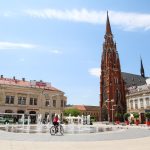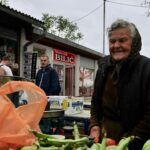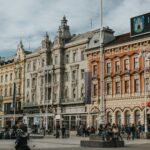The 3rd Croatian Diaspora Congress finished on July 1, 2018. As the only foreigner involved, a fascinating insight into one of Croatia’s most complex relationships.
One of the great enigmas of Croatia for me is its relationship with its diaspora.
Croatia has a population of less than 4 million, and a diaspora of almost the same amount – in fact, if current demographic trends continue, soon there will be more Croats living outside the homeland than in it.
The diaspora has the vote, but pays no tax, but last year sent back more than 2 billion euro to the homeland (and, so I was told, over 100 billion since 1990).
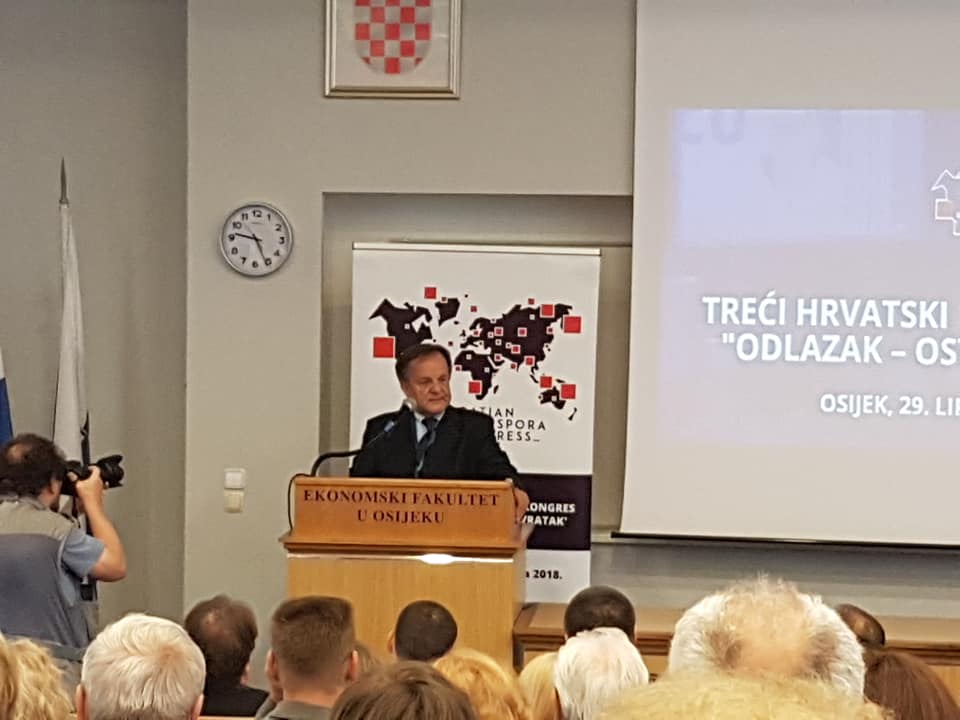
(Conference organiser Marin Sopta opens the 3rd Croatian Diaspora Congress at the Faculty of Economics in Osijek)
Despite comprising almost half of the Croatian population globally, there is no ministry for diaspora affairs.
The diaspora has a great love of the homeland, and yet many Croats abroad speak little Croatian and have very little understanding of the realities of Croatia today.
As I have learned over the last few years, the diaspora is not one cohesive unit, but spread all over the globe, the legacy of four major emigration cycles, some political, some economic. The circumstances of the emigration cycle have an effect on how the next generation of the diaspora views Croatia.
The Croatian diaspora has some very wealthy people, whose love of Croatia would make them natural investment partners if the conditions were right, but horror stories of investing in the newly independent Croatia in the 1990s have made many very wary.
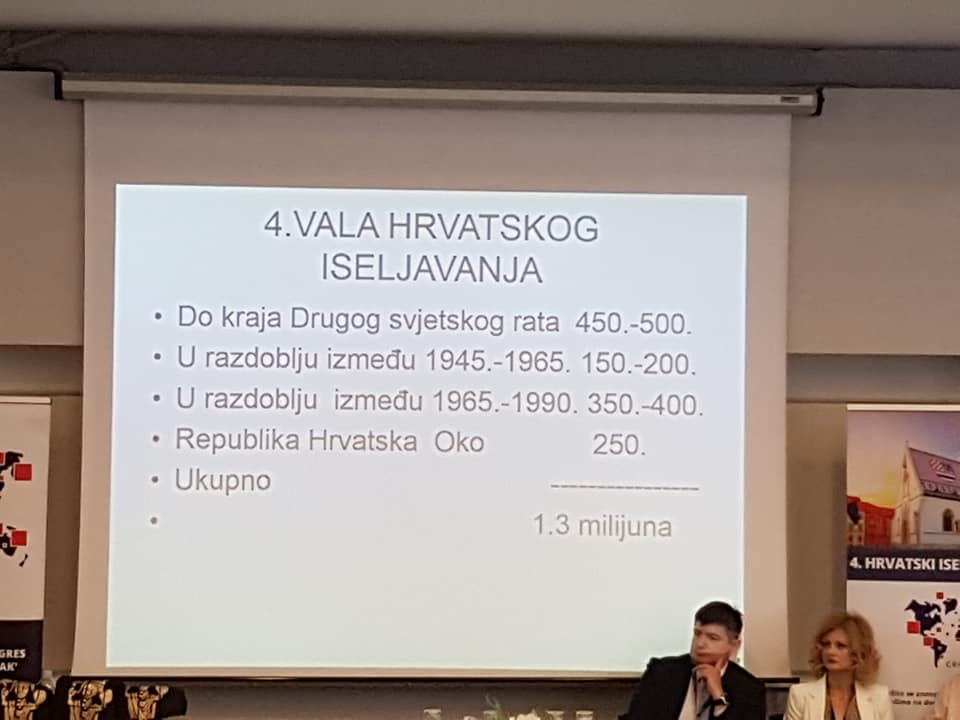
(The four waves of Croatian emigration, some 1.3 million so far, and counting)
The past is very firmly the timeline where most diaspora discussions tend to focus, with Tito and Serbia topics which cannot be discussed calmly, or at all, in some quarters.
And so when I received an invitation to come and speak at the 3rd Croatian Diaspora Congress in Osijek this weekend, I was not only honoured by the invitation, but also very curious as to who would turn up and what concretely would be achieved. In this era of cheap political points and brave political rhetoric about stemming the crippling emigration Croatia is experiencing, a chance to be a foreign fly on the wall could be rather fascinating.
And so it proved…
The choice of the congress location, Osijek, was inspired. Not only was it the heart of the current, fourth wave of emigration, but it also gave congress participants a chance to explore this forgotten, and extremely beautiful, part of Croatia that is overlooked by Croatia’s tourism gurus, and a trip to Vukovar and Ilok after the conference finished enabled diaspora visitors to enjoy a lesser known part of Croatian tourism.
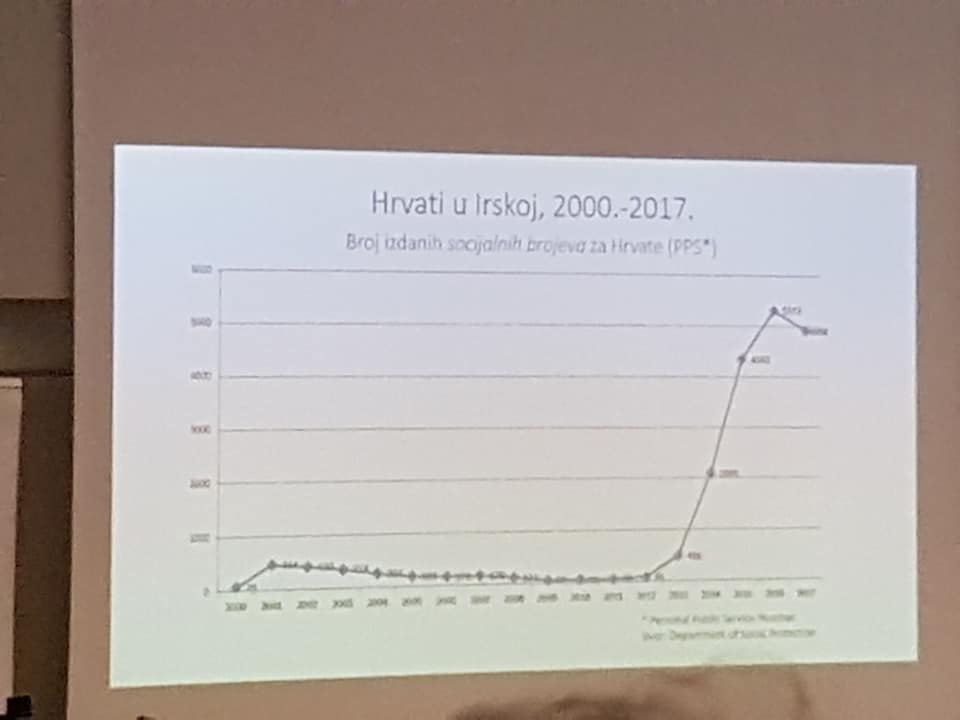
(One of the effects of EU entry – Croatian migration to Ireland, for example – sharply up since 2013)
Some came to talk politics, but the politicians were not there. For such a high profile event, and with election-time words talking of the importance of the relationship with the diaspora, I was expecting a minister, or deputy minister at least, to show his face at least for the introductions. None was forthcoming, and official duties were left to an assistant minister. One of the key resolutions from the last congress was the need for a Ministry for Diaspora Affairs. The politicians gave their response by largely ignoring the congress and the wishes of its participants.
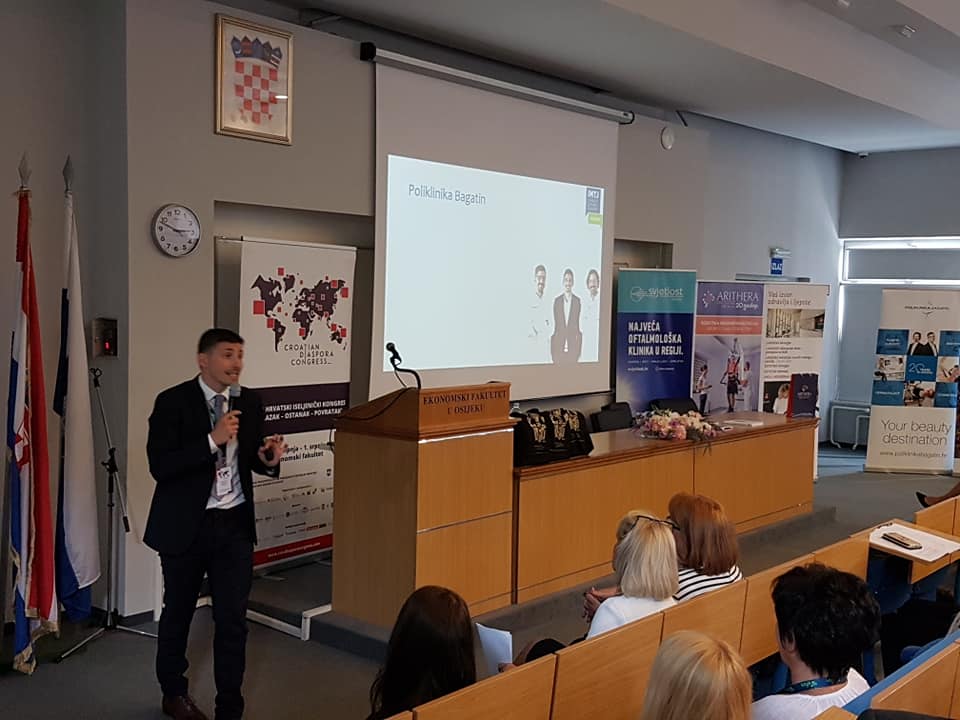
(The turning point of the conference – We need you – a message from Ognjen Bagatin and Croatia’s health tourism sector that the diaspora are not hearing from politicians)
It was another piece in the jigsaw of the realities of The Beautiful Croatia. A diaspora clearly pained by the separation from the homeland, be it for political or economic reasons, but with a burning love and money to invest. But no interest from those ruling the modern Croatia, whose personal interests would not be served by such a development. A diaspora with a clear love of its country and with money to invest met with corruption and political indifference. The solution of the way forward came to me, but before I could formulate my thoughts, it was echoed by the next speaker, Ognjen Bagatin from Bagatin Clinic, one of the driving forces for entrepreneurial change in Croatia, and the leading light in Croatia’s emerging health tourism sector.
“We need you.” It was a message so at odds to the indifference of the politicians that it was, for this foreigner at least, the turning point of the congress. “The Croatian diaspora are our greatest ambassadors.”
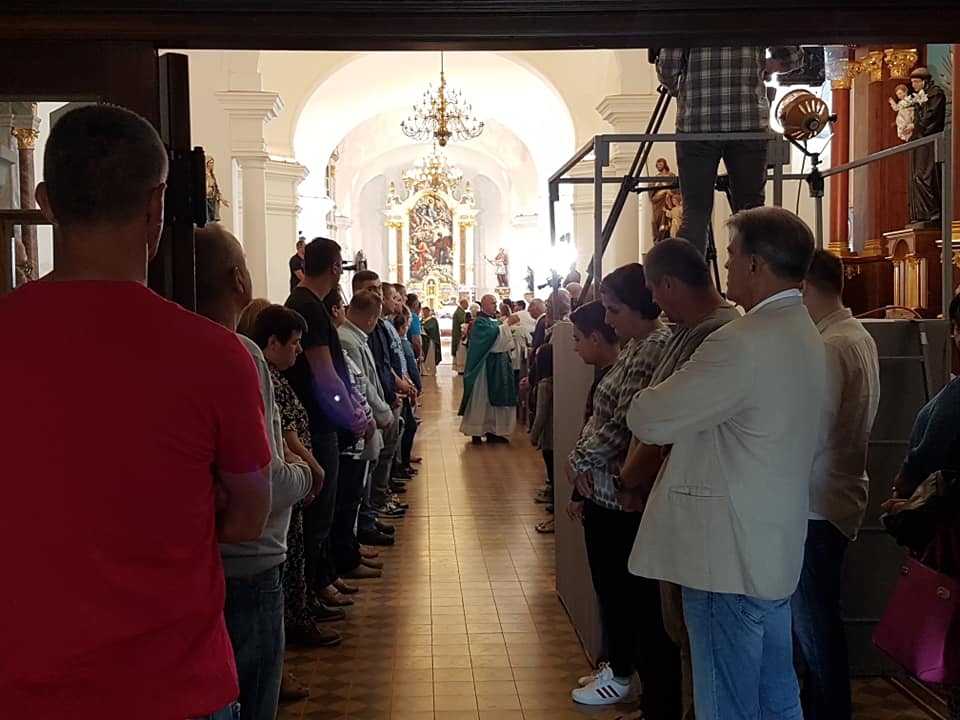
(The congress ended with a tour of eastern Croatia, including Sunday mass in Vukovar)
And there it was, as clear as day – a new relationship with the homeland, but not through political channels and the incompetence and corruption they entail, but through the entrepreneurs who are succeeding in Croatia, not because of the state, but in spite of it. It is natural when investing in a country to start with government institutions, but in The Beautiful Croatia, there is little point, especially if you are looking for a successful outcome. But there are plenty of incredible success stories in Croatia, entrepreneurs doing incredible things, and if they and the business-minded diaspora community can connect, a new and exciting chapter in the homeland/diaspora opens up.
Clinging on to the past, however understandable the reasons, is holding Croatia back, and one of the most positive and hopeful statements in all my time in Croatia came from a Croatian diaspora speaker who remarked that so many diaspora keep on talking about the injustice of brutality of Tito and can’t let go. He himself was exiled by Tito for 30 years, but continued to invest in Croatia, and now is the time to move on from the past and look to the future. And, he continued, if I can say that after those 30 years in exile, others can too.
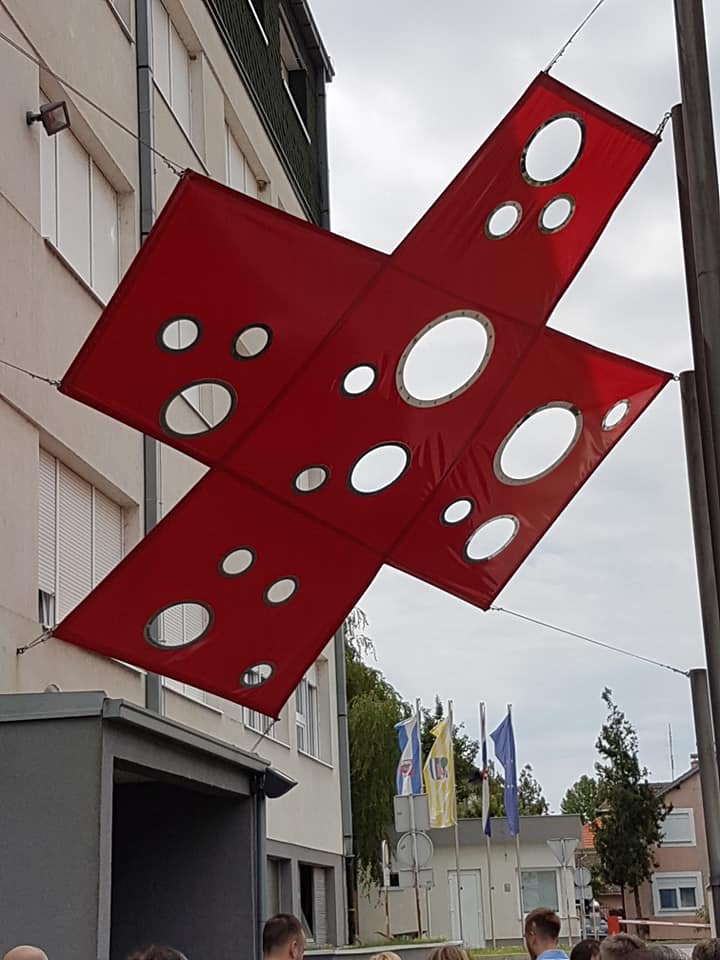
(An emotional and harrowing return to the horrors of Vukovar in 1991, with a visit to the Vukovar Hospital Museum)
One of the key themes of the congress was the need to reverse the current emigration. The best speech of the conference came from Professor Nikica Gabric, whose Svjetlost Eye Clinic is one of the stars of Croatia’s impressive and world-class medical tourism offer. No wonder the young professionals are leaving. He pays his doctors 23,000 kuna a month net, but then must pay the state a staggering 26,000 kuna in contributions. 49,000 kuna a month, of which less than half goes to the doctor. Lessen the tax burden and the doctor will have a salary which will make him less likely to take up a job abroad. But that would take some initiative from the politicians and affect the cashflow of the crony class. Not going to happen.
Which leaves the diaspora with the one relationship of hope, a relationship where they can contribute, be valued and improve Croatia without engaging with the state – by strengthening ties with the entrepreneurs.
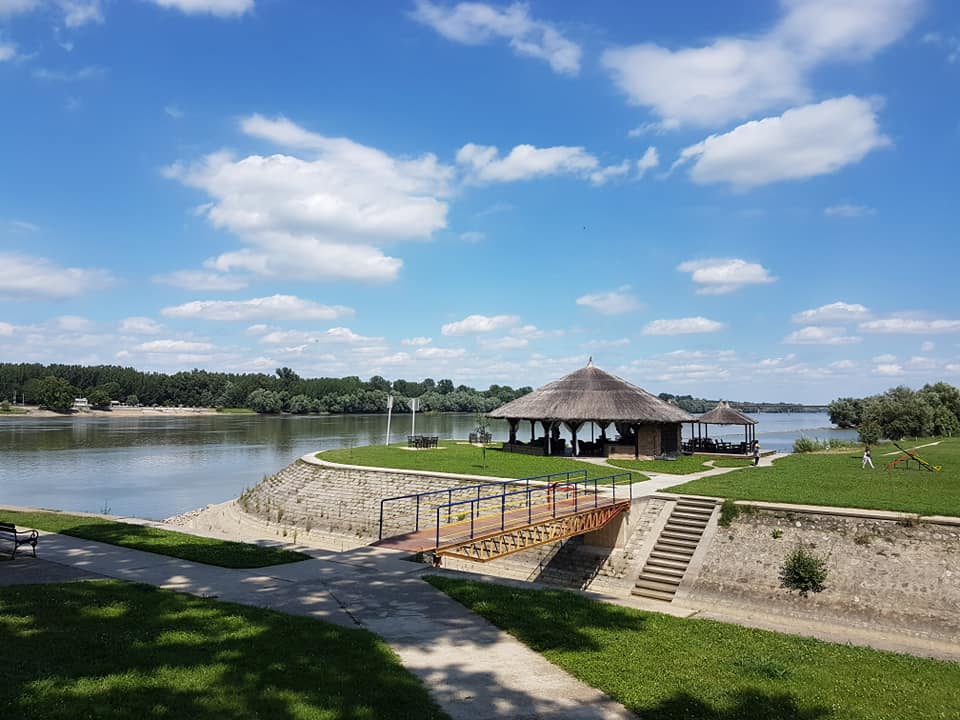
(Idyllic Ilok, the final stop on the 3rd Croatian Diaspora Congress)
Soon after I started Total Croatia News, I realised that I was entering a Croatia I had not known before. I had never encountered the word ‘uhljeb’ (a person whose state position is due to connection, and whose ability or dedication to the job are questionable at best) in my idyllic 13 years on Hvar. The more we wrote about the realities of Croatia, the more we were abused, but the more also we were contacted by inspiring people all over the country. People who were living in their own Croatian bubbles, doing their own thing. Denied the chance of careers in state institutions due to their lack of connections, despite their qualifications, these young people are choosing either to emigrate or exist in a parallel Croatia with minimal contact with the state.
What if? What if one could connect these bright young minds, many great entrepreneurial ideas and plans, with the business-minded diaspora who had an interest in investing in the country without having to go through the lecherous official channels? What if the business-minded diaspora heeded the call of Ognjen Bagatin – we need you – and a new relationship between businessmen in the homeland and the diaspora was forged, one that was B2B without the need of involvement from state officials?
Connecting those bubbles is something that TCN has been doing for a while with series such as Meet the Female Entrepreneurs of Croatia. It is a topic I touched on during my presentation at the panel on the Croatian Media and the Diaspora (see video above) – of how TCN can become a bridge between those bright and isolated bubbles all over Croatia and the business-minded diaspora.
That relationship is the future of Croatia’s relationship with the diaspora, and TCN would be delighted to help it develop.





